(Week of 8/12/2013) Americans seem smarter when it comes to recognizing problems than seeing the good side: in the last few years they have been slow in recognizing the slow national economic improvement. The latest Economist/YouGov Poll suggests that is also true about federal budget deficits. Americans clearly know when they exist, but are less clear at recognizing when they are going away.
More than two-thirds in this week’s poll know that there is a federal budget deficit today – and only 9% think the budget has a surplus. This is known by those at all education and income levels, in both parties and in all age groups.
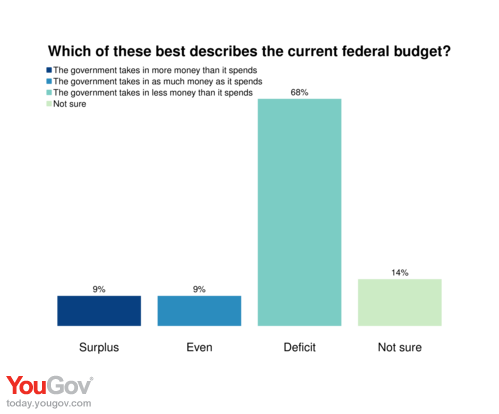
While this is an important issue to more than eight in ten Americans, only 7% (more Republicans than Democrats) think it is the most important issue.
When the public is asked about the status of the budget at the end of the terms of the last two Presidents, they demonstrate their greater awareness of deficits than surpluses. 59% recognize that there was a deficit in the last year of the Presidential Administration of George W. Bush, but only 38% correctly know that there was a surplus the final year of the Clinton Administration.
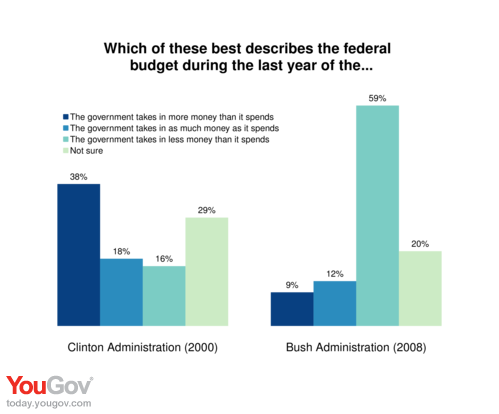
Memory is partisan: by nearly five to one, Democrats see the last year of the Clinton Administration in surplus (independents recognize that by more than two to one), but Republicans are slightly more likely to think the 2000 budget was in deficit as in surplus.
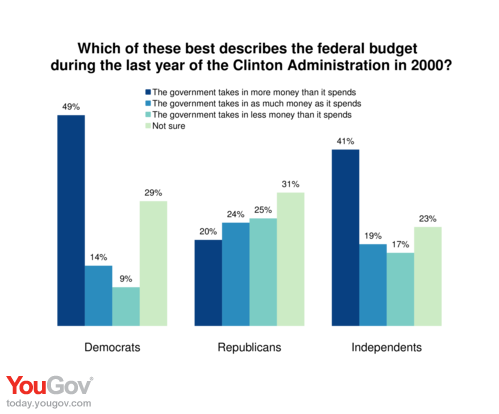
Back then, it took a while for the news that the deficit had disappeared to seep into public consciousness. In May 2000, as the deficit disappeared, 65% of Americans in an NPR/Kaiser poll believed the deficit still existed. However, by the following March, a majority in a CBS News/New York Times Poll agreed that the government then “takes in more money than it spends.”
Although it remained over a trillion dollars, the deficit actually shrunk a little in Fiscal Year 2012 from its Fiscal Year 2011 level. Yet many do not recognize that there had been any improvement last year. In fact, more think that the deficit was higher in 2012 than believe it was lower.
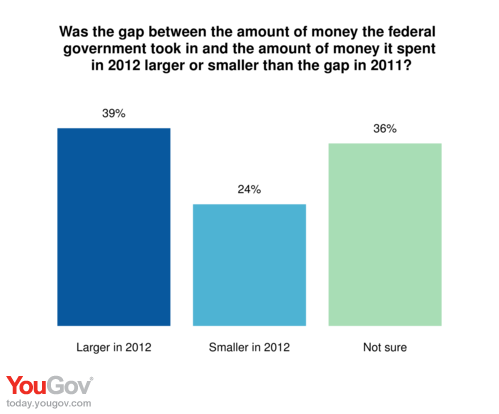
Knowing the current situation does not seem to help when evaluating even the recent past. Americans who know that there is a budget deficit are also more likely to think it grew in Fiscal Year 2012 than they are to recognize that it did not, just the same as those who do not know the current situation.
Most Americans understand that the federal debt and the federal budget deficit are two different things (the question of increasing the federal debt limit has embroiled Congress several times already during the Obama Administration, and it will again in just two months). Six in ten Americans say that the debt is larger than the deficit, 12% think the opposite, and the rest are not sure.
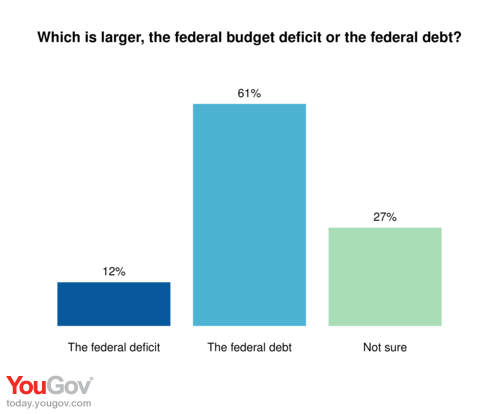
Here education and income matter: better-off and better-educated Americans are more likely to answer correctly, although in no group does a majority believe the deficit is larger than the total debt.
The President gets low marks for his handling of the deficit. In this week’s poll, only 33% approve of the way he is managing this situation.
Images: Getty







